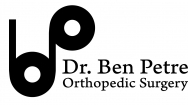What medicines should I take and what medicines should I stop around surgery?
Medications are important for your health, but there are some that increase your risks around surgery and others that it is dangerous to stop. The list below is not cover every possible medicine, just the most common ones. If you have questions about your medicines, please ask!
Medicines that should not be stopped:
Many blood pressure, heart disease and seizure medicines should be taken as prescribed including the morning of surgery. These include:
- beta blockers (metoprolol, Toprol, Lopressor, atenolol,Tenormin, propranolol, Inderal, etc)
- blood pressure medications
- anit-reflux medications (omeprazole, Prilosec, ranitidine, Zantac, rabeprozole, Aciphex, esomeprazole, Nexium, etc)
- Narcotic pain medicines and tylenol
Medicines to stop 2 weeks prior to surgery
- Blood thinners should be discussed on a per patient basis including Plavix, Aspirin, Coumadin, Heparin
- Herbals including: Dong Quai, Gingko Biloba,St. John’s Wort (all types), Echinacea, Ginseng, Valerian, Ephedra, Glucosamine, Vitamin C (more than 2000mg daily), Feverfew, Goldenseal, Vitamin E (more than 400mg daily), Fish Oils (Omega‐3 Fatty acids), Kava, Garlic, Licorice
- All diet pills
- All nicotine products including cigarettes, cigars, chew, dip and nicotine patches and gum.
Medicines to stop 1 week (7 days) prior to surgery
- Stop ALL over the counter herbal medications/supplements 7 days or more before your surgery.
- Stop all anti-inflammatories or NSAID medicines including ones taken for pain (Ibuprofen, Naproxen, Aleve, Advil, Celebrex, etc.)
